Speakers
Meet the speakers of the 2024 North Carolina Space Symposium!
Plenary Speaker
Erica Alston
- Program Executive, NASA Earth Sciences Division, NASA Headquarters
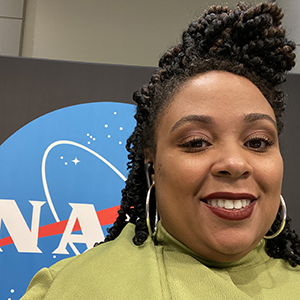
Biography
Dr. Erica J. Alston is a 19-year veteran of federal civilian service. She now works in NASA’s Science Mission Directorate (SMD) at NASA Headquarters serving as a Program Executive in the Earth Science Division. In this role, she serves as a HQ representative in all project management-related matters involved in getting Earth observing missions into orbit. Dr. Alston helps manage the Total and Spectral Irradiance Sensor-2 (TSIS-2) and the Multi-Angle Imager for Aerosols (MAIA) missions. Additionally, she manages the NASA Post-Doc Program (NPP) for the Agency. Prior to her time in SMD, Dr. Alston was the Deputy Space Grant Manager where she provided day-to-day oversight and management of the National Space Grant Fellowship and College Program (Space Grant). Dr. Alston started her career with NASA in 2004 as a computer engineer in the Science Directorate at NASA Langley Research Center. After completing her Ph.D., her research focused upon utilization of satellite data for both air quality and climatic impacts in the Southeastern U.S.
Dr. Alston is from Franklin County. She graduated with a B.S. and M.S. in Mathematics from Clark Atlanta University. Her Ph.D. was awarded in Atmospheric and Planetary Sciences from the Georgia Institute of Technology in Atlanta, GA. Outside of work, she immerses her daughter in the awe and wonder of science that exists all around us, and helps her daughter foster her interests in cooking and dance.
Luncheon Speaker
Paul Byrne
- Associate Professor of Earth, Environmental, and Planetary Sciences, Washington University in St. Louis
- Director, NASA Planetary Data Systems (PDS) Geosciences Node
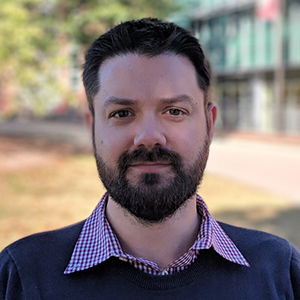
Biography
Paul Byrne received his degrees in geology from Trinity College Dublin, Ireland. He was a postdoctoral fellow at the Carnegie Institution for Science in Washington, DC on NASA’s MESSENGER mission, the first to orbit the planet Mercury. After a second fellowship at the Lunar and Planetary Institute in Houston, Texas, he moved to North Carolina State University as an assistant and then associate professor. He became Associate Professor of Earth, Environmental, and Planetary Sciences at Washington University in St. Louis in 2021, and chaired the panel on Venus for the National Academies 2023–2032 Planetary Science and Astrobiology Decadal Survey. His research focuses on comparing and contrasting the surfaces and interiors of planetary bodies, including Earth, to understand why planets look the way they do.
Open Science Speaker
Nathan Morrow
- Associate Professor in International Health and Sustainable Development, Tulane University
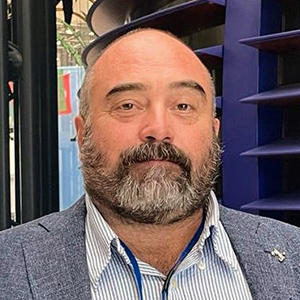
Biography
Dr. Morrow regularly collaborates with both international and community-based organizations to support research, learning, evidence-based policy, and organizational development. His research leverages geospatial tools in community-engaged open science with policy relevance to environmental justice, human and planetary well-being, and food system resilience. Before supporting community-led research following hurricane Katrina and the Deepwater Horizon disaster along the Gulf Coast, Dr. Morrow led large international initiatives serving as Chief of Party for a 400 million USD humanitarian aid response to an El Niño drought crisis in southern Africa. As American Evaluation Association Emergency and Disaster chair, Dr. Morrow promoted inclusive engagement and rigorous measurement for resilience research and intervention planning. Geospatial analysis by Dr. Morrow informed environmental security aspects of the Global Environment Facility (GEF-7) replenishment strategy. Working with United Nations agencies, he has conducted numerous technical reviews including Sustainable Development Goal target indicator 2.2.1. He led applied research, assessments or evaluations in Angola, Bangladesh, Cape Verde, Chad, Cote d’Ivoire, Dominican Republic, DRC, Egypt, Ethiopia, Haiti, Italy, Lesotho, Mali, Mozambique, Niger, Senegal, Somalia, South Africa, Sri Lanka, Sudan, Zambia, and Zimbabwe. Currently, he is PI for a NASA-funded open science capacity development project to advance environmental justice networks in coastal communities.
NASA Earth Science in North Carolina Session Speakers
Kathyrn Caruso, Moderator
North Carolina Center Lead, NASA DEVELOP National Program,
NOAA National Centers for Environmental Information
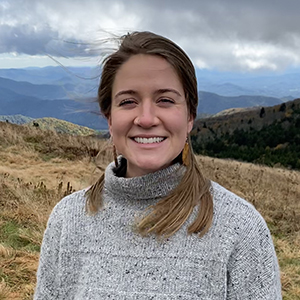
Katie Caruso is the North Carolina Center Lead for the NASA DEVELOP National Program and is based at NOAA National Centers for Environmental Information (NCEI) in Asheville, NC. Katie received her BSc in Biology with a minor in Religious Studies from the University of North Carolina Asheville where she researched how southern Appalachian plants and fungi respond to environmental change, facilitated plant education workshops with the Botanical Gardens at Asheville, and interned as a science writer with the National Environmental Modeling and Analysis Center (NEMAC). After her undergraduate degree, Katie restored coastal and nearshore habitats on the North Shore of O‘ahu as an AmeriCorps member and returned to Asheville to support conservation efforts in Western North Carolina. Katie joined NASA DEVELOP in the fall of 2021 and participated in two projects that applied remote sensing data to identify suitable habitat for Venus flytrap in North and South Carolina and model the dispersal of spongy moth in New England forests. As a NASA DEVELOP Center Lead, Katie collaborates with community organizations to build research projects that integrate geospatial data into their decision making and supports teams of early and transitioning career scientists to conduct applied Earth science research.
Douglas Rao
Research Scientist, North Carolina Institute for Climate Studies
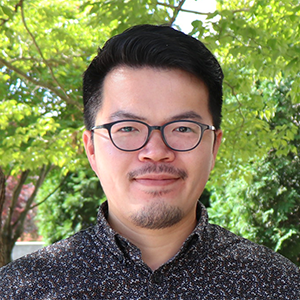
Dr. Yuhan “Douglas” Rao is a research scientist with the North Carolina Institute for Climate Studies at North Carolina State University. Through NOAA’s Cooperative Institute for Satellite and Earth System Studies, Douglas is supporting NOAA’s National Centers for Environmental Information and NOAA Center for AI. His research focuses on the development and stewardship of long-term satellite data records for climate monitoring. His recent projects include using machine learning for data fusion and developing cloud-computing-based data access tools for global vegetation monitoring with long-term satellite observations. He received his Ph.D. in Geographical Sciences from the University of Maryland, College Park.
Leila Hashemi Beni
Associate Professor of Remote Sensing and GIS, North Carolina Agricultural and Technical State University
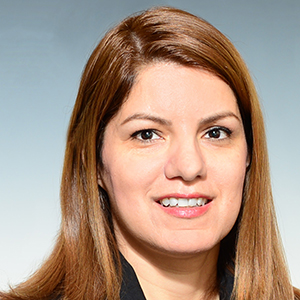
Leila Hashemi-Beni is an associate professor of Remote Sensing and GIS at the Department of Built Environment at College of Science and Technology, North Carolina A&T State University. She is the director of NCAT’s DEAP institute of Geospatial Data Science and Remote Sensing for Environmental Management funded by NASA. Her research experience and interests span the areas of UAV and satellite remote sensing, multi temporal and multisource data fusion and image classification, 3D data modeling, automatic matching and change detection between various datasets and developing GIS and remote sensing methodologies for environmental management. She is currently working as a PI/Co-PI on many projects supported by NASA, NSF, NOAA, Microsoft, North Carolina Collaboratory, North Carolina DoT. She has served as proposal panelist and reviewer for many US and international funding organizations, and she has served as a chair/co-chair or as a scientific committee member for many national or international conferences/workshops. She is currently serving as the Co-Chair of LiDAR, Laser Altimetry and Sensor Integration Working Group, International Society of Photogrammetry and Remote Sensing (ISPRS).
Tamlin Pavelsky
Professor of Global Hydrology, University of North Carolina at Chapel Hill
Hydrology Science Lead, NASA Surface Water and Ocean Topography (SWOT) Mission
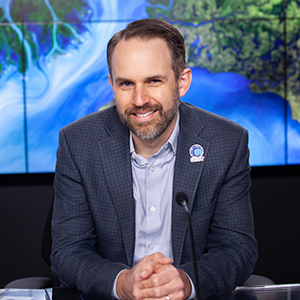
Dr. Tamlin Pavelsky is a professor of global hydrology in the Department of Earth, Marine and Environmental Sciences at the University of North Carolina at Chapel Hill. He earned his PhD in geography from UCLA in 2008. His dissertation focused on using remote sensing, field measurements, and large datasets to understand how the water cycle in northern environments varies in space and time. In 2009, Tamlin was hired as an assistant professor at the UNC. His research has focused on understanding the global distribution of water in rivers, lakes, and mountain snowpack using satellite imagery, field measurements, and regional climate models. Since 2013, Dr. Pavelsky has served as the hydrology science lead for the NASA Surface Water and Ocean Topography (SWOT) satellite mission. For his work leading the surface water community towards solutions for measuring river flow from space, Dr. Pavelsky was awarded a Presidential Early Career Award for Scientists and Engineers, the highest award given by the U.S. government to early career researchers. He grew up in central Alaska in cabins without electricity or running water.
Student Lightning Talk Presenters
Session 1
Aurora Toennisson, Moderator
Ph.D. Candidate, North Carolina State University
North Carolina Space Grant Alumni and Advisory Board Member
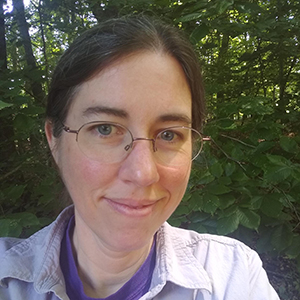
Aurora’s dissertation research focuses on plant adaptation to spaceflight. In support of this research, she received two NC Space Grant fellowships for projects focused on plant response to simulated microgravity and the effects of spaceflight-isolated microbes on plant growth. As part of her PhD, she has gained several years experience as a teaching assistant for general botany and plant molecular biology lab classes. Previously, Aurora received a BS in Biology with a focus on Ecology and Evolutionary Biology and a MS in Entomology from the University of Tennessee. Her MS research focused on the community ecology of urban ants and the nesting behavior of the pest ant species Tapinoma sessile. Prior to returning to grad school for her PhD, she worked for a couple years on an organic farm and several more as a research associate in an agricultural entomology lab. In the latter role, she supported research on pests and beneficial insects associated with North Carolina specialty crops.
Aurora is an avid supporter of science communication and outreach. She blogs about entomology and gardening at The Biologists Garden and space biology at Sprouts in Space. She coordinates outreach events for the North Carolina Entomological Society, the Orange County Radio Amateurs, and the NCSU Biology Maker Group. Her volunteer work as a middle school First Lego League coach is what originally inspired her to pursue space biology. Upon graduating, she hopes to find work where she can do meaningful research related to plants and microbes, continue formal or informal science teaching, and remain engaged with the space biology community.
Spencer Rhea
Ph.D. Student, Duke University
2023-2024 NC Space Grant – NC Sea Grant Graduate Research Fellow
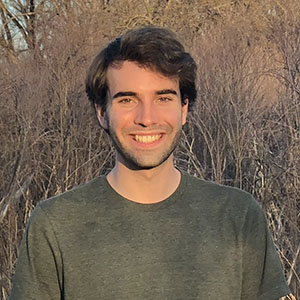
Spencer Rhea is a Doctoral Student in Duke University’s Ecology program who was awarded a joint North Carolina Space and Sea Grant Graduate Research Fellowship to study ghost forests. Spencer’s work seeks to develop new remote sensing techniques to detect saltwater intrusion in coastal rivers and canals.
Victoria Whidden
Undergraduate Student, Appalachian State University
2023-2024 Undergraduate Research Scholar

Victoria, an undergraduate student at Appalachian State University, received NC Space Grant undergraduate funding for her research in Optical Physics. Her work centers around the application of optical tweezers to optimize and quantify forces acting on gold nanoparticles with diverse geometric shapes. The ultimate goal is to leverage these forces as propulsion methods for small CubeSats.
Logan Selph
Undergraduate Student, University of North Carolina at Chapel Hill
2023-2024 Undergraduate Research Scholar
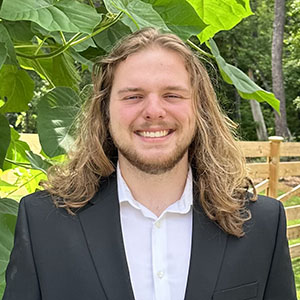
Logan Selphis a senior undergraduate student at the University of North Carolina at Chapel Hill who was awarded an NC Space Grant Undergraduate Research Scholarship for the 2023-24 year. He conducted research on short time period gravitational wave modeling for applications in undergraduate introductory astronomy courses as well as for optical counterparts following binary neutron star mergers. This is his second NC Space Grant, building on his previous work with neutron star mergers and developing tools for education and research.
Khalaeb Richardson
Ph.D. Student, North Carolina State University
2023-2024 Graduate Research Fellow
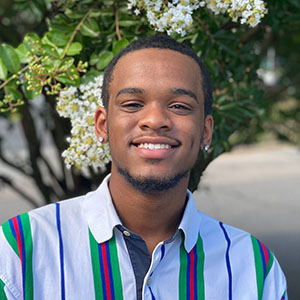
Khalaeb Richardson is a doctoral student at North Carolina State University who was awarded an NC Space Grant Graduate Research Fellowship for the 2023-24 academic year. He conducted research investigating the usage of extended reality cognitive aids during long term space flight, particularly their impact on cognitive workload and performance.
Session 2
Bryce Abbott
Aerospace Structural Engineer, Collier Aerospace
North Carolina Space Grant Alumni
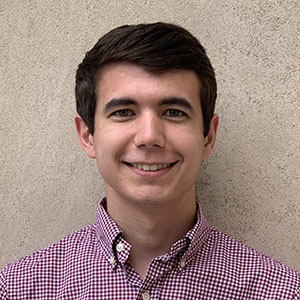
Bryce Abbott is an Aerospace Structural Engineer at Collier Aerospace and an NC Space Grant Alumni from Henderson, NC. Bryce has been a part of the NC Space Grant family since the spring of 2017 when he was originally nominated for an NCSG Undergraduate Scholarship as an aerospace engineering student at NC State University. Later, Bryce was selected as an NCSG Scholar in the summers of 2017, 2018, and 2019, supporting his internships at NASA Langley Research Center and the National Institute of Aerospace (NIA) in Hampton, VA. In these internships, Bryce worked on projects related to structural health monitoring and non-destructive testing of composite structures and developed a passion for research. After graduating with his Bachelor’s degree in the spring of 2019, Bryce enrolled in the direct-to-PhD program at NC State under his research advisor, Dr. Fuh-Gwo Yuan, whom he met through NC Space Grant. As a PhD candidate, Bryce was an NC Space Grant Graduate Fellow from 2020-2022. This NCSG program supported his research into developing computer-vision-based methods for imaging hidden, subsurface damage in composite structures caused by low-velocity impacts. In early January 2024, Bryce successfully defended his dissertation and began working at Collier Aerospace in Raleigh, NC.
Riley Bishop
Ph.D. Student, North Carolina State University
2023-2024 Graduate Research Fellow

Riley Bishop is a doctoral student at North Carolina State University who was awarded an NC Space Grant Graduate Research Fellowship for the 2023-2024 year. His research during this fellowship has investigated the locomotion capabilities of a screw-propelled vehicle as a possible alternative to the current fleet of wheeled rovers for the autonomous exploration of Mars.
Anjali Kumari
Ph.D. Student, North Carolina Agricultural and Technical State University
2023-2024 Graduate Research Fellow

Anjali Kumari is a second year M.S./Ph.D. Nanoengineering student at the Joint School of Nanoscience and Nanoengineering. She received her B.S. in biology from North Carolina Agricultural and Technical State University. She currently serves as the president for Materials Research Society at the Joint School of Nanoscience and Nanoengineering (MRS@JSNN).
Titus Szobody
Undergraduate Student, North Carolina State University
2023-2024 NASA Goddard Space Flight Center Intern

Titus Szobody is an undergraduate student at NC State University majoring in chemical engineering. Titus was awarded three internships at the NASA Goddard Space Flight Center that were funded by the NC Space Grant (summer 2023, fall 2023 and spring 2024). His research has focused on developing space-compatible liquid mirrors for potential use on NASA’s next generation space telescopes.
Derrick Carr
Ph.D. Student, University of North Carolina at Chapel Hill
2023-2024 Graduate Research Fellow
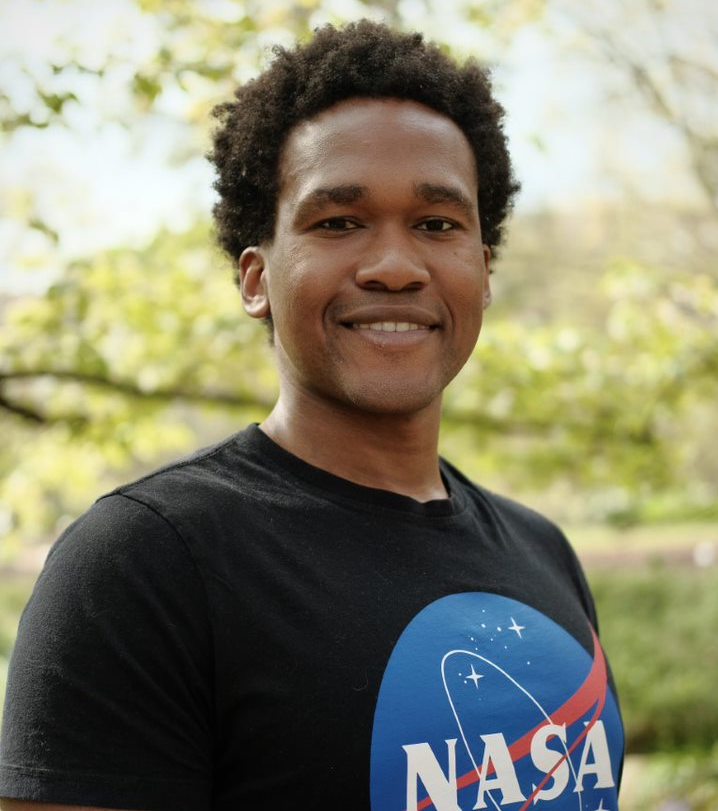
Derrick Carr is a physics doctoral candidate at the University of North Carolina at Chapel Hill who was awarded the NC Space Grant Graduate Research Fellowship for the 2020-2021 and 2023-2024 years. His research focuses on identifying compact “nugget” galaxies and learning how these galaxies fit into our understanding of galaxy evolution as a whole.
Open Science 101 Workshop Facilitators
Cynthia Hall
Support Scientist for Early Career Research Program, NASA Earth Sciences Division
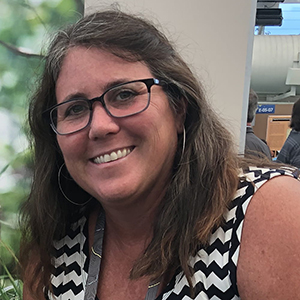
Cynthia Hall is currently a support scientist within NASA’s Earth Science Division at NASA Headquarters in Washington, DC. She works within the Early Career Research Program in Earth Science to empower those early in their professional careers to develop solutions to benefit society, respond to changes in the Earth’s system, and to support Earth Science to Action. In addition to being an Earth scientist, specializing in remote sensing, she also has expertise in science and math education. This unique combination allows her to engage with diverse communities, conducting outreach and bridging the gap between science and non-science audiences. In addition, Cynthia specializes in developing resources for increased inclusivity and accessibility, for communities including data users from scientists to educators to decision makers, all with a varied range of needs.
Elizabeth Joyner
Community Coordinator, NASA Earth Science Data Systems Communications, Science Systems and Applications, Inc.
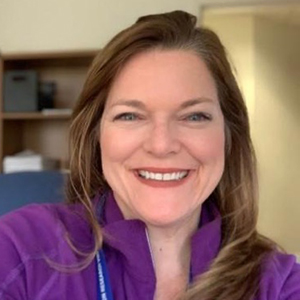
Elizabeth Joyner serves on the Earth Science Data Systems (ESDS) Program Communications Team as the Community Coordinator and works across the program to promote the use of NASA data and resources with end users. She previously served as the Senior Outreach Coordinator for NASA Langley Research Center’s Science Directorate as the Task Lead for the My NASA Data project. Elizabeth is a seasoned science outreach specialist and brings more than 25 years of experience working with government agencies, non-profits, and education institutions. Elizabeth taught for over 10 years in both public and private school, as well as worked in informal settings such as Virginia Space Grant Consortium, SC Space Grant, SC Sea Grant Consortium, NOAA/NSF’s Center for Ocean Sciences Education Excellence, and the American Geosciences Institute.
Nathan Morrow
Associate Professor in International Health and Sustainable Development, Tulane University

Dr. Morrow regularly collaborates with both international and community-based organizations to support research, learning, evidence-based policy, and organizational development. His research leverages geospatial tools in community-engaged open science with policy relevance to environmental justice, human and planetary well-being, and food system resilience. Before supporting community-led research following hurricane Katrina and the Deepwater Horizon disaster along the Gulf Coast, Dr. Morrow led large international initiatives serving as Chief of Party for a 400 million USD humanitarian aid response to an El Niño drought crisis in southern Africa. As American Evaluation Association Emergency and Disaster chair, Dr. Morrow promoted inclusive engagement and rigorous measurement for resilience research and intervention planning. Geospatial analysis by Dr. Morrow informed environmental security aspects of the Global Environment Facility (GEF-7) replenishment strategy. Working with United Nations agencies, he has conducted numerous technical reviews including Sustainable Development Goal target indicator 2.2.1. He led applied research, assessments or evaluations in Angola, Bangladesh, Cape Verde, Chad, Cote d’Ivoire, Dominican Republic, DRC, Egypt, Ethiopia, Haiti, Italy, Lesotho, Mali, Mozambique, Niger, Senegal, Somalia, South Africa, Sri Lanka, Sudan, Zambia, and Zimbabwe. Currently, he is PI for a NASA-funded open science capacity development project to advance environmental justice networks in coastal communities.